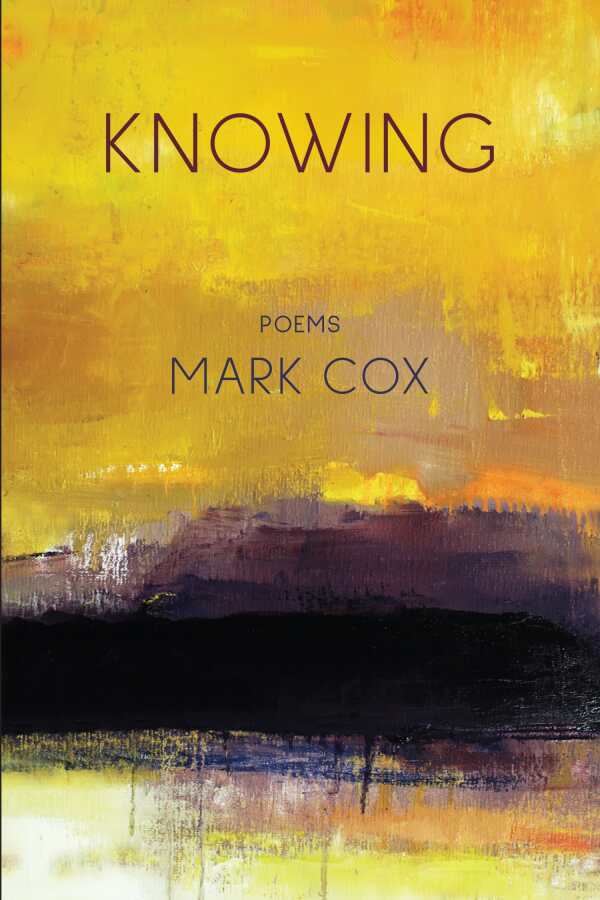Knowing
Poems
An earthy collection that honors loved ones in universal tones, Knowing is a poetic source of respite.
Mark Cox’s poetry collection Knowing is a confident, gentle retrospective on human connections.
The book is divided into four parts that exist as means of communication. They address the dead, confront the past self, list regrets for a confessor, and speak to friends. They include remarkable paradoxes: these are private musings that consider the needs of other people.
Several poems are addressed to fellow poets; their diction, sincerity, and structures contradict the reputation of poetry as an elite art form shared among elite colleagues. Here and elsewhere, the language is direct and conversational, even when the stakes are high. The poems express acceptance around not knowing too. “The Dance,” following poet Jack Myers’s ashes being set on the beach, is about watching the tide come in like “a sweaty, steadfast partner, guiding you toward a crowded floor and music we can enter, but never understand.”
Although most poems in the book look backward in time, they are not stuck in the past. Some integrate contemporary elements within a past so deep that it causes breathless panic. In “Storm Front,” a writer in the midst of composition acknowledges that a lightning strike could “wipe this screen clean.” Working under this risk, he still won’t “click save until the end. Why pretend to save what cannot be salvaged? Why not just let go?”
The collection’s dominant form is the prose poem. Blocks of text march down the page, sometimes with white space between individual blocks. Without the assistance of line breaks, images are left to animate and organize the poems. In “Blink Once for Yes,” survivors settle within “conga lines of overcoats, the xylophone of shoes, the untold husks of attempted selves.” Iambic beats and strategic rhymes also arise: “My Grandmother’s Urine,” centered on the image of a bucket, ends on “and missed” in a slant rhyme for “piss.”
Several poems memorialize Cox’s grandmother, who lived and worked in a home with no running water, a wood stove, and a kitchen the size of a closet. The book lionizes her, emphasizing her as a historical figure, the memory of whom becomes a measure of how much time has passed. This complements the book’s overarching themes: the ephemeral quality of existence and the ever-presentness of one’s death, “worn through life like a second skin.”
The reflective poetry collection Knowing enters into quiet, prose-poetic conversations with the self and others.
Reviewed by
Michele Sharpe
Disclosure: This article is not an endorsement, but a review. The publisher of this book provided free copies of the book and paid a small fee to have their book reviewed by a professional reviewer. Foreword Reviews and Clarion Reviews make no guarantee that the publisher will receive a positive review. Foreword Magazine, Inc. is disclosing this in accordance with the Federal Trade Commission’s 16 CFR, Part 255.

